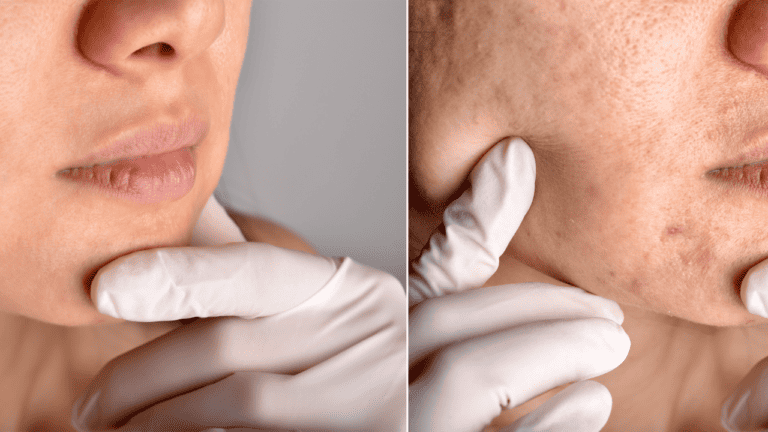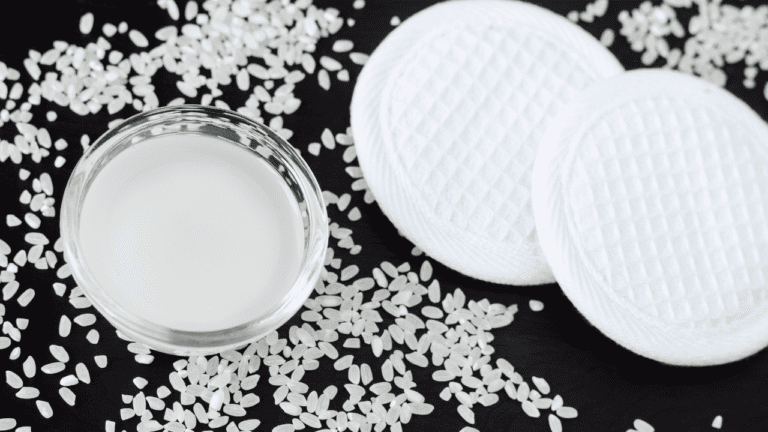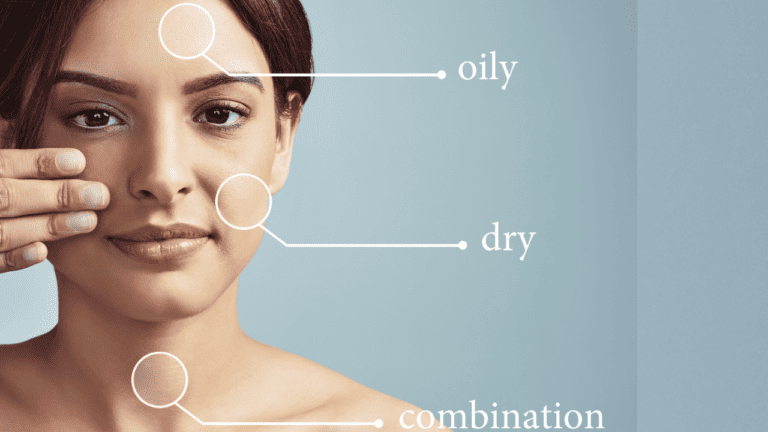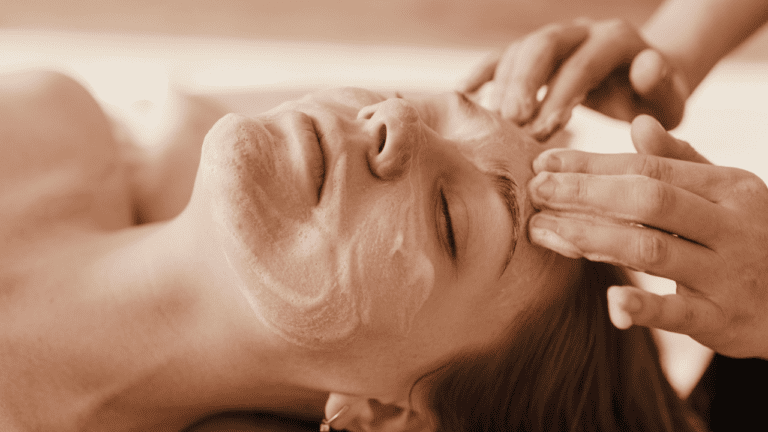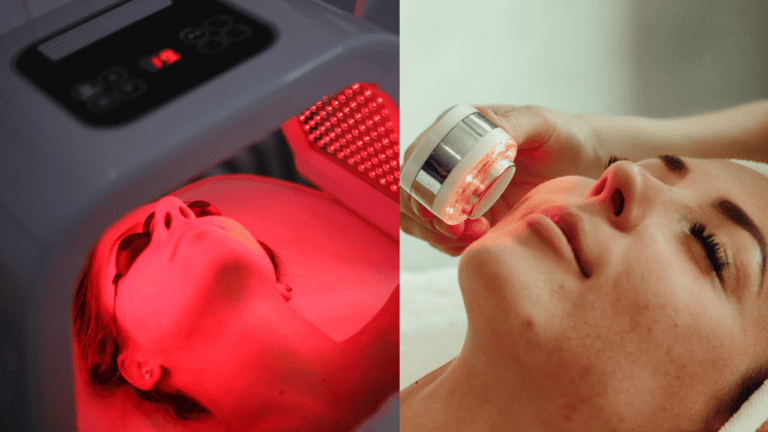Oil cleansing has become a popular skincare trend in recent years. The method involves using an oil-based cleanser to remove dirt and makeup from the skin. While many people swear by oil cleansing for its hydrating and gentle properties, others have experienced breakouts after trying the method. So, is oil cleansing breaking you out?
Understanding oil cleansing is the first step in answering this question. Oil cleansing involves using oil-based products to dissolve and remove impurities from the skin. The method is based on the idea that “like dissolves like,” meaning that oil can dissolve the oil-based impurities on your skin without stripping it of its natural oils. However, not all oils are created equal, and some may be comedogenic, meaning that they can clog pores and cause breakouts.
Identifying the causes of breakouts is crucial in determining if oil cleansing is breaking you out. Breakouts can be caused by a variety of factors, including hormones, stress, diet, and skincare products. If you have recently started oil cleansing and are experiencing breakouts, it could be due to the type of oil you are using or the frequency of use. It is essential to choose the right oils for your skin type and address any underlying skin concerns before starting oil cleansing.
Key takeaways
- Oil cleansing involves using oil-based products to dissolve and remove impurities from the skin.
- Breakouts can be caused by various factors, including the type of oil used and underlying skin concerns.
- Choosing the right oils for your skin type and addressing any underlying skin concerns is crucial for successful oil cleansing.
Understanding Oil Cleansing

Oil cleansing is a skincare method that involves using oil to clean the face instead of traditional cleansers. The oil cleansing method is based on the principle that “like dissolves like,” meaning that oils can dissolve the oils and impurities on the skin. This method is gaining popularity among skincare enthusiasts, but there are still some misconceptions about it.
The Basics of Oil Cleansing Method
To perform the oil cleansing method, one should apply oil to their face and massage it into their skin for a few minutes. The oil should be removed with a warm, damp washcloth. The oil cleansing method can be done once or twice a day, depending on the skin type.
Benefits of Oil Cleansing
Oil cleansing can provide several benefits to the skin. Firstly, it can help to remove impurities and makeup from the skin. Secondly, it can be more hydrating than traditional face washes because it doesn’t contain many surfactants. Thirdly, it can help to unclog pores and prevent breakouts. Lastly, it can also help to balance the skin’s natural oils.
Common Misconceptions
One common misconception about oil cleansing is that it can cause breakouts. However, this is not always the case. Oil cleansing can help to unclog pores and prevent breakouts, but it is important to choose the right oil for your skin type. Some oils, such as coconut oil, can be comedogenic and clog pores. Another misconception is that oil cleansing can replace moisturizing. However, oil cleansing is not a replacement for moisturizing, and it is important to use a moisturizer after oil cleansing to keep the skin hydrated.
In conclusion, oil cleansing is a skincare method that can provide several benefits to the skin. It is important to choose the right oil for your skin type and to use a moisturizer after oil cleansing. By understanding the basics of oil cleansing, its benefits, and common misconceptions, one can make an informed decision about whether or not to try this method.
Identifying the Causes of Breakouts
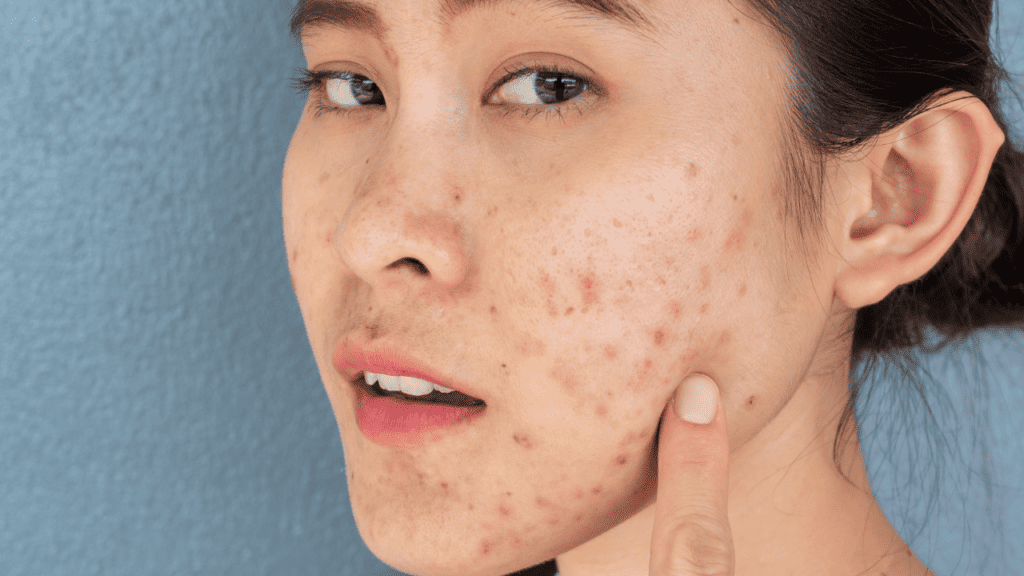
Breakouts are a common skin concern that can be caused by a variety of factors. When it comes to oil cleansing, several factors can contribute to breakouts, including the ingredients in the oil, the quality of the oil, and the cleansing techniques used.
Role of Ingredients in Breakouts
Some oils contain ingredients that can clog pores and lead to breakouts, especially for those with acne-prone or sensitive skin. For example, coconut oil has a high comedogenic rating, which means it has a high likelihood of clogging pores. On the other hand, oils like jojoba and grapeseed have a low comedogenic rating and are less likely to cause breakouts. It is essential to know the ingredients in the oil cleanser to avoid using oils that may trigger breakouts.
Impact of Oil Quality
The quality of the oil used for oil cleansing can also impact breakouts. Some oils may be rancid or contain impurities that can irritate the skin and cause breakouts. It is essential to choose high-quality oils that are cold-pressed, organic, and unrefined. These oils are less likely to contain impurities that can irritate the skin.
Cleansing Techniques and Frequency
The technique and frequency of oil cleansing can also impact breakouts. Over-cleansing or using too much pressure while cleansing can irritate the skin and cause breakouts. It is recommended to use gentle circular motions while cleansing and to limit oil cleansing to once or twice a day. Additionally, it is essential to follow up with a gentle water-based cleanser to remove any remaining oil residue.
By identifying the causes of breakouts related to oil cleansing, individuals can make informed decisions about the type of oil, quality of oil, and cleansing technique to use, ultimately reducing the likelihood of breakouts.
Choosing the Right Oils for Your Skin

When it comes to oil cleansing, choosing the right oils for your skin is crucial. Different oils have different properties and can affect your skin in different ways. Here are some things to consider when selecting oils for your skin.
Oils for Different Skin Types
Different skin types require different oils. For example, if you have oily skin, you may want to avoid heavy oils like coconut oil and olive oil, which can clog pores and lead to breakouts. Instead, consider using lighter oils like jojoba oil, which is similar in composition to sebum, the natural oil produced by your skin.
If you have dry skin, on the other hand, you may want to use heavier oils like argan oil and rosehip oil, which can help moisturize your skin and improve its texture.
Potential Irritants in Oils
Some oils can be potential irritants, especially if you have sensitive skin. For example, coconut oil can be comedogenic, meaning it can clog pores and cause breakouts. Similarly, some people may be allergic to oils like castor oil, which can cause redness and itching.
It’s important to patch test any new oil before using it on your face. Apply a small amount of oil to your inner forearm and wait at least 24 hours to see if you have any adverse reactions.
Non-Comedogenic Oils
If you’re prone to breakouts, you may want to look for oils that are non-comedogenic, meaning they won’t clog your pores. Some examples of non-comedogenic oils include jojoba oil, argan oil, and rosehip oil.
Overall, choosing the right oils for your skin is a personal decision that depends on your skin type and individual needs. Experiment with different oils to find the ones that work best for you.
Addressing Skin Concerns with Oil Cleansing
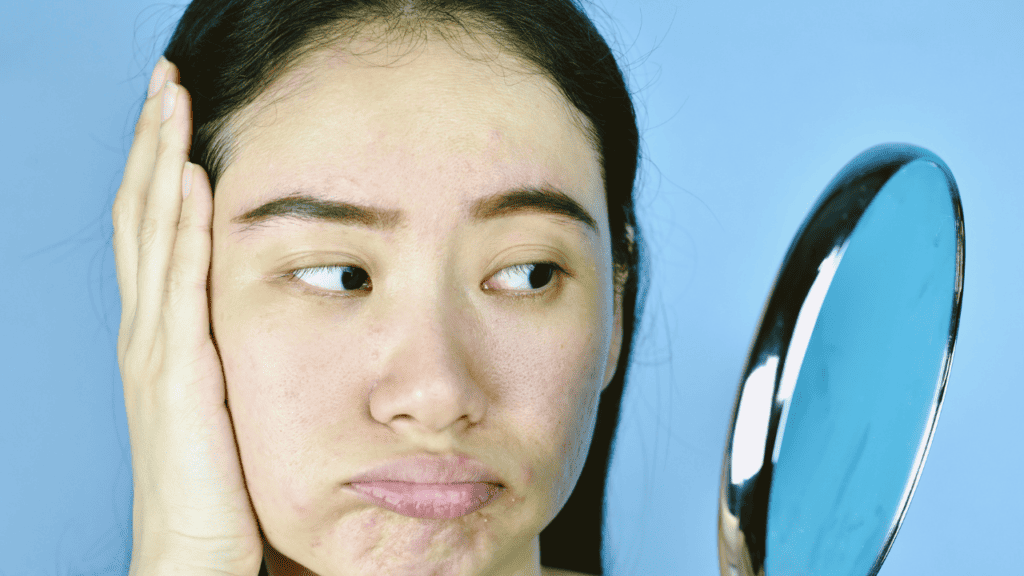
Oil cleansing has become a popular method for removing makeup, dirt, and impurities from the skin. However, some individuals may experience skin concerns such as acne, blackheads, oily skin, clogged pores, dryness, and irritation when using this method. In this section, we will discuss how to combat these skin concerns and achieve healthy, glowing skin.
Combating Acne and Blackheads
Acne and blackheads are common skin concerns that can be exacerbated by oil cleansing. However, oil cleansing can also be an effective way to combat acne and blackheads if done correctly. It is important to use a non-comedogenic oil such as jojoba or grapeseed oil, which will not clog pores. Additionally, using a warm washcloth to gently remove the oil can help to unclog pores and remove impurities. Regular exfoliation can also help to prevent blackheads and keep the skin clear.
Managing Oily Skin and Clogged Pores
Oil cleansing can be an effective way to manage oily skin and clogged pores. When the skin is stripped of its natural oils, it can overproduce oil, leading to clogged pores and breakouts. Oil cleansing helps to balance the skin’s natural oils, preventing overproduction and keeping the pores clear. Using a lightweight, non-comedogenic oil such as argan oil can help to regulate oil production and prevent clogged pores.
Soothing Dry and Irritated Skin
Oil cleansing can also be beneficial for dry and irritated skin. Dry skin lacks moisture and can become irritated and inflamed, leading to redness and flakiness. Oil cleansing helps to restore moisture to the skin, improving its barrier function and preventing further moisture loss. Using a nourishing oil such as avocado or rosehip oil can help to soothe dry, irritated skin and improve its overall health and appearance.
In conclusion, oil cleansing can be a beneficial method for achieving healthy, glowing skin. By using the right oils and techniques, individuals can combat skin concerns such as acne, blackheads, oily skin, clogged pores, dryness, and irritation.
Professional Insights and Best Practices

Consulting with Dermatologists
If someone is experiencing breakouts after incorporating oil cleansing into their skincare routine, it is recommended that they consult with a board-certified dermatologist. A dermatologist can provide personalized recommendations and advice based on an individual’s skin type and concerns. They can also help determine if the breakouts are due to purging or an adverse reaction to the oil cleanser.
Research and Clinical Studies
Research on the efficacy of oil cleansing is limited, but there are some studies that suggest it can be beneficial for certain skin types. One study found that oil cleansing can help improve the skin’s barrier function and hydration levels. Another study found that oil cleansing can be effective in removing makeup and impurities from the skin.
Incorporating Oil Cleansing into Skincare Routine
When incorporating oil cleansing into a skincare routine, it is important to choose a high-quality oil cleanser that is appropriate for the individual’s skin type. It is also recommended to double cleanse, using an oil cleanser followed by a gentle foaming cleanser to ensure all impurities are removed from the skin.
It is important to note that while oil cleansing can be beneficial for some individuals, it may not be suitable for everyone. It is recommended to patch test any new skincare products before incorporating them into a routine to avoid adverse reactions.
Overall, consulting with a dermatologist and conducting research on the efficacy of oil cleansing can help individuals make informed decisions about incorporating it into their skincare routine.
Frequently Asked Questions
Can oil cleansing lead to increased acne or breakouts?
Oil cleansing can lead to increased acne or breakouts, especially if the wrong type of oil is used or if the skin is not properly cleaned.
Some oils, such as coconut oil, can clog pores and cause breakouts. It is important to choose oils that are non-comedogenic, meaning they will not clog pores. Additionally, it is important to properly clean the skin after oil cleansing to ensure that all of the oil is removed.
How can you tell if oil cleansing is not suitable for your skin?
If oil cleansing is not suitable for your skin, you may experience increased acne or breakouts, redness, or irritation. It is important to pay attention to how your skin reacts to oil cleansing and to discontinue use if any negative effects are observed.
What duration should be expected for the skin to adapt to a new oil cleansing routine?
The duration for the skin to adapt to a new oil cleansing routine can vary depending on the individual and their skin type. Some people may see results immediately, while others may take several weeks to see a difference.
It is important to be patient and consistent with oil cleansing to allow the skin to adjust and to see the full benefits.

